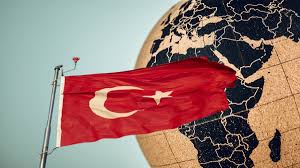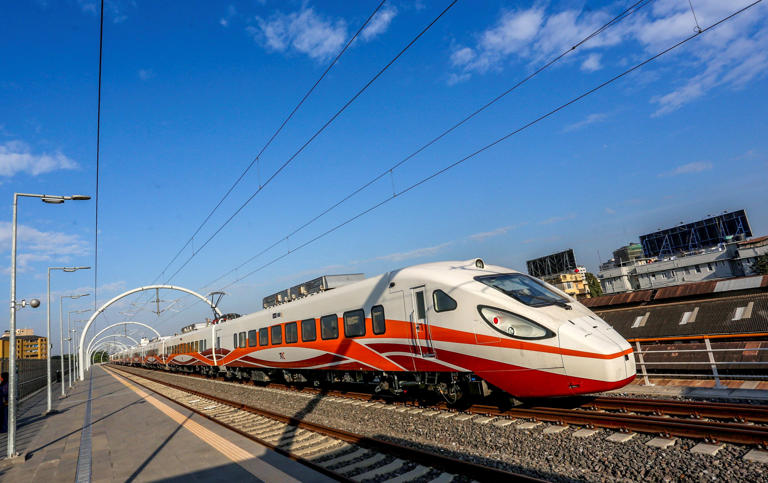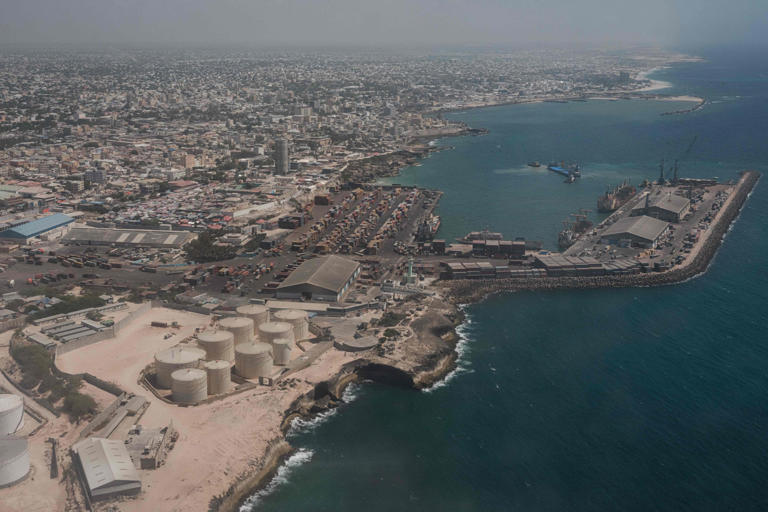
By Edson Baraukwa | Africa Guardian
Last month marked a historic moment as passenger trains departed from Dar es Salaam, Tanzania, heading towards Dodoma for the first time. This new railway line, part of a $7.6 billion project extending over 1,200 kilometers, was constructed by the Turkish firm Yapi Merkezi, known for its previous projects like the Dubai Metro and the Makkah and Madinah train stations. Yapi Merkezi is now moving forward with another major railway project in Uganda.

Since 1972, Turkish construction firms have completed nearly 2,000 projects across Africa, totaling $91.5 billion in value. These recent endeavors in Tanzania and Uganda reflect Turkey’s broader strategy to expand its influence on the continent. This push comes as Turkey seeks new markets amid domestic economic challenges and aims to bolster its strategic interests amidst competition from the Middle East, Russia, and China.
“Turkey’s growing involvement in Africa is driven by more than just immediate economic gains,” explains Elem Eyrice Tepeciklioglu, an associate professor at the Social Sciences University of Ankara. “Turkey aims to extend its influence beyond its traditional areas in the Middle East and Europe.”
This approach is part of Turkey’s broader efforts to mend diplomatic relations with former adversaries and capitalize on economic opportunities while addressing regional security issues. Abel Abate Demissie from Chatham House notes that President Recep Tayyip Erdogan’s strategy includes reasserting Turkish influence in regions historically linked to the Ottoman Empire, particularly North Africa and the Horn of Africa. With ongoing instability in the Horn of Africa, countries in the region are increasingly looking for new alliances as traditional Western support wanes.

In Somalia, Turkey has established strong diplomatic, trade, and military ties, recognizing the country’s strategic location and potential. Turkish conglomerate Albayrak manages Mogadishu’s port, and another Turkish firm operates the city’s airport. Turkey’s recent parliamentary decision to extend its military presence in Somalia highlights its commitment to maintaining a foothold in the region.
Mahad Wasuge of the Somali Public Agenda emphasizes that foreign interest in Somalia is driven by both commerce and security concerns. Turkey’s investments are part of a broader strategy to build long-term relationships and capitalize on Somalia’s untapped potential.
Turkey’s role in Africa is not intended to rival other countries, particularly Arab nations, but rather to secure its interests amid a competitive landscape. Turkey’s relations with key Arab states have fluctuated over the past decade, but recent years have seen improvements in diplomatic and economic ties with the UAE, Saudi Arabia, and Egypt.
Tunc Demirtas from Seta notes that Turkey’s engagement in Africa is characterized by a commitment to stability, adherence to international law, and collaboration with legitimate governments. However, concerns exist about the sustainability of these relationships, given that many are based on personal connections between Turkish leaders and African counterparts.
In Ethiopia, which has contentious maritime disputes with Somalia, Turkey sees opportunities for investment in agriculture, infrastructure, and energy. “Given Turkey’s historical ties and investments in the region, its interest in the Horn of Africa is understandable,” says Nebiyu Tedla from Ethiopia’s Foreign Ministry.
Minister of Foreign Affairs @HakanFidan hosted Taye Atske Selassie, Minister of Foreign Affairs of Ethiopia, and Ahmed Moallim Fiqi, Minister of Foreign Affairs and International Cooperation of Somalia, on the occasion of the second meeting of the Ankara Process in Ankara. 🇹🇷🇪🇹🇸🇴 pic.twitter.com/oM2afPKiyM
— Turkish MFA (@MFATurkiye) August 13, 2024
Despite some criticisms, such as allegations against Turkish firms in Somalia, Turkey continues to expand its footprint across the continent. The Turkish private sector’s competitive edge lies in offering high-quality, cost-effective goods and services, positioning itself as a viable alternative to Chinese and Western offerings.
Turkey’s trade with Africa has grown significantly, with exports to North Africa and sub-Saharan Africa reaching $21.4 billion in 2023. The Turkish government aims to increase this figure to $75 billion, supported by Turkish Airlines’ extensive network across Africa.
Turkey’s strategic interests extend beyond trade, with a focus on high-value sectors like energy and defense. The recent visit to Niger and agreements for resource exploration underscore Turkey’s intent to secure long-term access to critical resources. Turkish military equipment, including drones, is also gaining traction across the continent.
Diplomatically, Turkey has expanded its presence in Africa, increasing its embassies from 12 in 2002 to 44 today. Ankara’s role as a mediator in regional disputes, such as between Somalia and Ethiopia, highlights its broader strategy to enhance its diplomatic and economic influence.
As Turkey continues to deepen its engagement in Africa, it aims to balance its interests with a commitment to stability and partnership, striving to be a constructive player on the continent’s complex stage.
___
